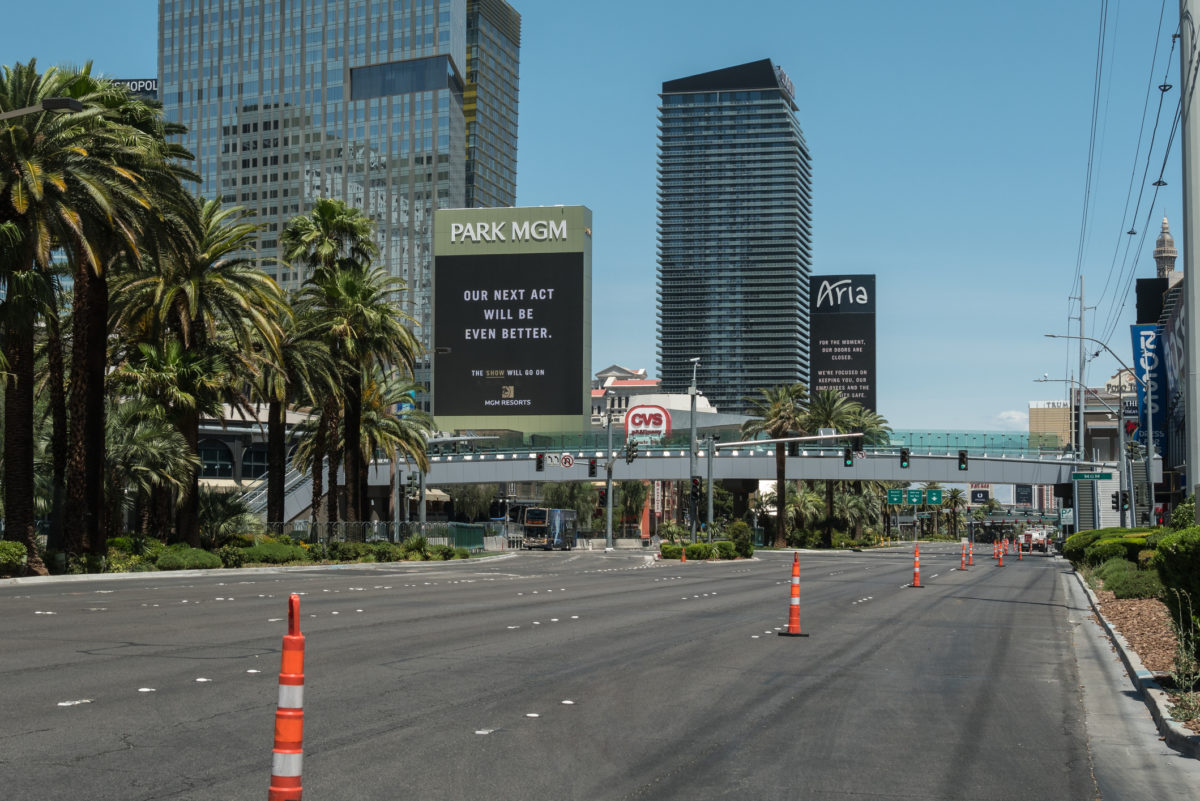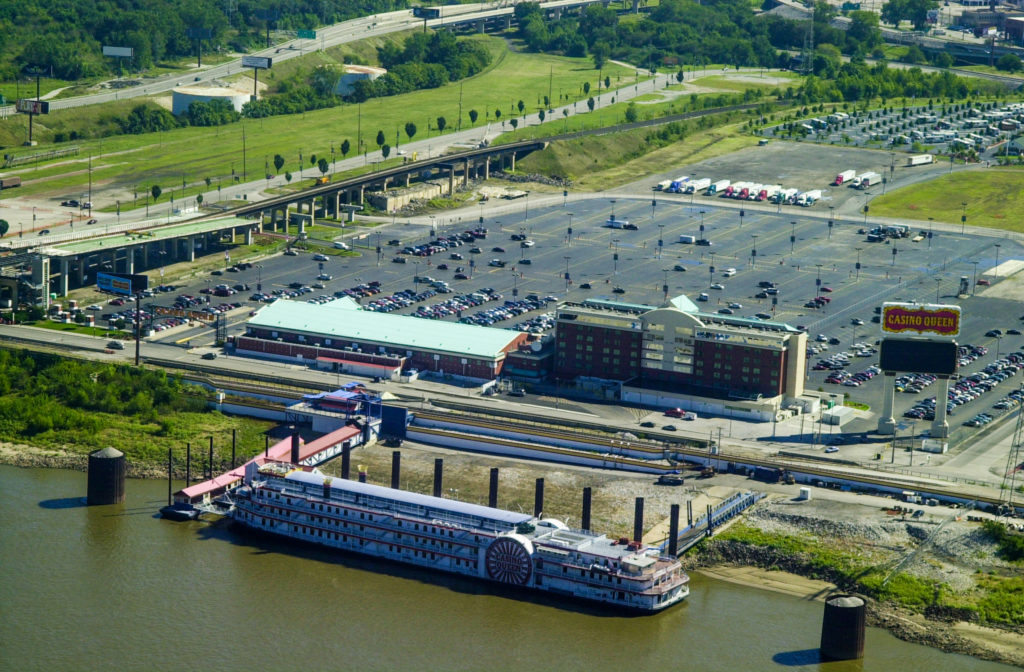
Ninety Years After Legalizing Gambling, We’ve Learned To Roll The Dice
By Nigel White
Thirty years ago, in 1991, Louisiana became the fourth state to approve riverboat gaming, an event of particular significance to me, as I was hired as employee No. 2 in Baton Rouge, joining Casino Rouge as Vice President of Finance. Thinking back on my long gaming, hotel and resort career, I realized just how many changes had taken place over the past three decades.
Previously, in 1989, Iowa’s Senate, on its third attempt, had finally managed to pass a bill legalizing riverboat gambling, thus making it the first state to do so, while Illinois’s Riverboat Gaming Act was passed in 1990. Technically, while Missouri had made it No. 3 earlier in 1991, the events of Missouri were especially noteworthy because it ultimately took multiple legislative events, a court battle, and three more years before the state fully legalized casino gaming and riverboats could begin operations.
What was really fascinating about all of this was that Nevada had legalized commercial gaming way back in 1931 through what was known as the “Wide Open” gambling bill. Sixty years on, however, gaming was still only really legal at the state level in Nevada, New Jersey (which was essentially Atlantic City), and Mississippi.
New Jersey had legalized gambling through the second statewide referendum on gaming, which passed on Nov. 2, 1976. Lawmakers used the redevelopment of Atlantic City as the catalyst for change, and formalized matters through the passage of the New Jersey Casino Control Act in 1977. Mississippi had passed the Mississippi Gaming Control Act in 1990, authorizing dockside casino gaming along the Mississippi River and the Gold Coast.
On a side note, South Dakota had legalized gaming in a single city, Deadwood, in 1989, with just poker, blackjack, and slot machines permitted, and Colorado had followed suit in 1991, legalizing limited gambling only in the historic mining towns of Black Hawk, Central City, and Cripple Creek, and imposing a betting limit of five dollars. It would be 2009 before that limit was increased to $100.
It was also interesting that in both states, South Dakota and Colorado, the excuse for gaming legislation was the preservation of a historic legacy. According to Deadwood.com, “Deadwood’s joint gaming and historic preservation venture was on the 1988 ballot and passed with 65% of the state’s population in favor of the required constitutional amendment. Its passage and implementation in 1989 made Deadwood the third legal gaming destination in the United States (after Nevada and Atlantic City). Deadwood celebrated its 30th anniversary of gaming at high noon on November 1, 2019.”
A Far Cry From A Generation Ago
On Oct. 15 1976, the President’s “Commission on the Review of the National Policy Toward Gambling” produced a rambling, final 200-page report, based on three years of research and hearings. It found that for the period 1974 to 1976, $17.7 billion was wagered legally every year by 14.1 million people. And we’re talking just about Nevada at that point.
Fast forward to the American Gaming Association’s (AGA) State of the States 2020 report, and we see 465 commercial casinos, 524 tribal casinos and 277 card rooms in operation — gambling in some form across 44 states. According to the AGA, in 2019, “Overall the gaming industry — including tribal operators and gaming suppliers — remains a major contributor to the wider U.S. economy, generating approximately $261 billion in total economic activity, including an estimated $52 billion worth of revenue to outside contractors and small businesses, while supporting an estimated 1.8 million jobs.” That is some serious money!

The year 2020, however, brought the Covid-19 pandemic disaster and, in mid-March, a gubernatorial order in Nevada that saw every casino and gaming operation in the state required to close. The Las Vegas Strip became a virtual ghost town for a period of time. Thirteen months on, as of April 5, 2021, 52 casinos that have not yet re-opened countrywide. You can see the live map here from the AGA Casino Tracker for more details.
Devastating Impact
The economic impact of the pandemic has been hard for casino workers and operations, with job losses, casino owners facing dramatic revenue losses, and general city, county and state economic sales and revenue impacted by losses from gaming taxes. A report in CNBC in May 2020 spoke about how the previous month, April 2020, was then the worst month of job losses in modern history, with the leisure and hospitality industry, which includes casinos, collectively losing 47% of all industry jobs.
According to the AGA, commercial gaming revenue dropped 31.3% to $30 billion in 2020, the lowest level since 2003, with 2020 marking the first market contraction for the U.S. gaming industry since 2014 and the lowest gaming revenue total since 2003. This was despite the fact that gaming’s performance in 2020 was lifted by legal sports betting garnering an all-time high of $1.5 billion in revenue, up 69% year-over-year, and iGaming revenue nearly tripling to almost $1.6 billion.
Yet, commercial casinos lost 27% of total operating days. According to Reuters, employment in the leisure and hospitality industry in December 2020 was down 23% from pre-pandemic levels in February last year.
Looking to the near future, I think 2021 will be a dig out year with a new base foundation, which will also depend on our having a near Covid-19 free country by the end of 2021. Hopefully, leading into 2022, this will mean being fully back to normal. For Las Vegas, that would also mean group and convention businesses would have to have returned to pre-pandemic levels, and casino revenues would have to have seen consistent monthly growth.
I hope that will happen, for it’s been hard on our state. I am very fortunate to live on a ranch north of Las Vegas, right at the entrance to the world-renowned Death Valley National Park. It’s beautiful, but it’s also a constant, stark reminder of the impact of Covid-19 on Nevada’s tourism industry. According to the Nevada Resort Association, “Nevada’s tourism economy accounts for one out of every three jobs in the state, supports $20 billion in wages and salaries each year and generates $75 billion of economic production annually — roughly 45 percent of the state’s aggregate output.”
And the lack of tourism has hit us hard. A January 2021 Bureau of Labor Statistics report on Metropolitan Area Employment and Unemployment stated, “Over the year, nonfarm employment declined in 50 metropolitan areas with a 2010 Census population of 1 million or more, while employment was essentially unchanged in 1 [one]. The largest over-the-year percentage decreases in employment in these large metropolitan areas occurred in Las Vegas-Henderson-Paradise, NV (-14.1 percent) …”
There are signs that the tourists who disappeared in the summer of 2020 from our shores will partially return in 2021, and 2022 will see a “back to normal” visitation pattern. Here in Nevada, we live in eternal hope.
Finally, one cannot close out the present without a thought about the passing early this year of Mr. Sheldon Adelson, a giant of the casino industry. He was a visionary and a pioneer of modern casino gaming who was instrumental in enhancing the Las Vegas Strip with his world-renowned Las Vegas Venetian Resort and the Sands Expo and Convention Center. Last month, came the news that Las Vegas Sands Corp. had sold its iconic Vegas properties in order to concentrate on its Asia operations. I have to think this is the end of an era. Or for Vegas, perhaps, the dawning of a new age.
The writer is a casino and gaming industry veteran and Biometrica’s CFO. This is the first of an occasional column on the state of the casino industry. You can reach him by writing to marketing@biometrica.com
Iowa was the first state to legalize riverboat casinos. You can read Biometrica’s story on gaming in Iowa and the story of the riverboat casinos, here.